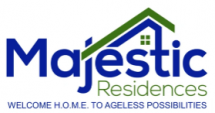Recognizing when a loved one may need additional care can be a daunting responsibility. As the natural aging process unfolds or if they face health challenges, it’s essential to be vigilant about signs indicating they require more support. Being proactive can ensure their safety and overall well-being, as well as offer peace of mind to families and friends. Here are some vital indicators to be aware of:
- Physical Changes: The most apparent signs are often physical. Watch out for sudden weight loss, bruises (indicating possible falls), or a decline in personal hygiene. Issues like difficulty moving around, unsteadiness, or a noticeable decrease in strength can signal that daily tasks have become burdensome.
- Cognitive Decline: Memory lapses are common as we age, but significant forgetfulness—like missing doctor’s appointments, forgetting to take medication, or becoming disoriented in familiar places—can indicate a more severe issue, like dementia or Alzheimer’s. Additionally, if they’re having difficulty managing their finances, like forgetting to pay bills or buying the same item repeatedly, it’s a sign they may need help.
- Mood or Behavioral Changes: Depression, irritability, or sudden mood swings are important red flags. Withdrawal from social activities or hobbies they once enjoyed can suggest they are struggling with their mental health or facing other challenges.
- Neglected Home Environment: If your loved one’s living environment seems more cluttered or dirtier than usual, or you notice unpaid bills, expired food, or utilities being turned off, it’s a signal that they might be struggling with day-to-day management.
- Social Isolation: Seniors, especially those living alone, can become isolated. If you notice your loved one is avoiding social events, has a decrease in communication, or seems lonely, they might benefit from more social interaction or supportive care.
- Health Concerns: Frequent visits to the doctor or hospital, unmanaged chronic conditions, or not taking medications as prescribed are all signs that they might need assistance in managing their health.
- Safety Concerns: If there are signs of mishandled medications, misuse of appliances (like leaving the stove on), or they’ve become victims of scams or financial abuse, it’s a significant indicator that intervention is required.
Recognizing these signs is just the first step. Communication is vital. Approach the topic with empathy, understanding, and patience. Remember, the goal is to ensure they’re safe and living the best quality of life possible. Whether it’s hiring a caregiver, considering an assisted living facility, or just increasing family visits and check-ins, there are numerous options available to offer more care.
Above all, the journey of identifying and addressing care needs is an act of love and concern. By staying informed and proactive, you can ensure your loved one’s safety, health, and happiness during their golden years.

